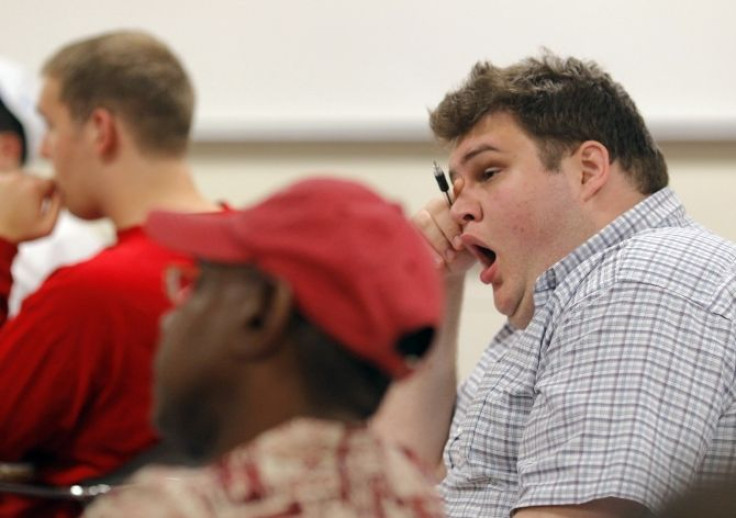Obesity and Depression are the Main Causes of Daytime Sleepiness

Daytime sleepiness may have more to do with lifestyle and emotions than it does with a poor night's sleep. In a new study, obesity and depression were found to be the culprits behind daytime sleepiness.
Sometimes coffee does not do the trick when trying to cure daytime sleepiness. While a lack of sleep and sleep apnea did play a role in feeling lethargic during the day, emotional stress and obesity were the two main causes of daytime drowsiness. Researchers believe that the sleepiness epidemic parallels the current obesity epidemic.
The new sleep study was led by Dr. Alexandros Vgontzas from Penn State University. Researchers examined 1,741 adults to help determine what affects daytime sleepiness and fatigue over the course of three studies. Of the participants, 222 adults had excessive daytime sleepiness and researchers conducted a follow up interview seven and a half years later.
At the follow up interview, for the adults whose excessive daytime sleepiness remained, weight gain was the biggest culprit. According to researchers, the adults who had excessive daytime sleepiness but lost weight improved their daytime fatigue.
In an additional study, some of the 1,741 adults who did not have excessive daytime sleepiness at the start of study did eventually develop excessive sleepiness. These new cases of excessive daytime sleepiness also had a follow up interview at the end of the study. The researchers discovered that depression and obesity were the greatest risk factors behind the new cases of excessive daytime sleepiness. Researchers found that the rate of new cases of excessive sleepiness was around eight percent.
To further put the focus on depression and obesity, a smaller study of 103 research volunteers also confirmed the findings of the two other studies.
Daytime sleepiness and a lack of sleep cause more than just making the day a drag to get through. There are serious health risks with losing sleep including high blood pressure, heart disease and diabetes. Daytime sleepiness can also affect job performance and increase accidents.
The new studies highlight new targets for intervention. Future public health efforts could educate and help people lose weight. Researchers and doctors could target depression and sleep disorders like sleep apnea to also improve daytime sleepiness.
The study was presented at SLEEP 2012, the 26th annual meeting of the Associated Professional Sleep Societies and should be considered preliminary until published in a peer reviewed journal.



























